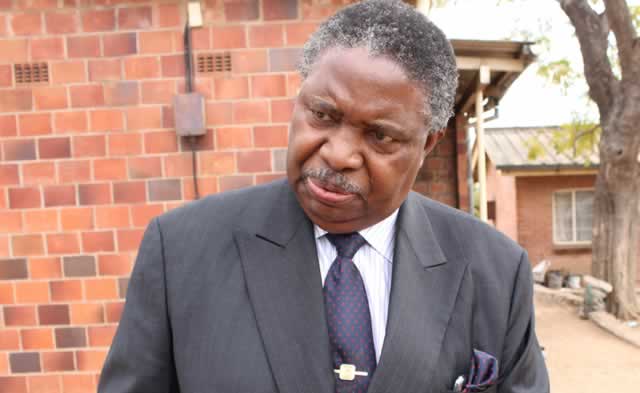The late former Vice President Phelekezela Mphoko, who passed away at the age of 84 while receiving medical treatment in India, is expected to be laid to rest at his family plot in Douglasdale, Bulawayo. This decision aligns with his expressed wishes, despite his designation as a national hero, which traditionally grants the honor of interment at the National Heroes Acre in Harare.
Mphoko’s Passing and National Hero Status
Mphoko, who served as Zimbabwe’s vice president from 2014 to 2017, was immediately declared a national hero following his death. The status, conferred by the government, honors individuals who played significant roles in Zimbabwe’s liberation struggle and paves the way for their burial at the National Heroes Acre—a revered site that holds the graves of many of the country’s independence war icons.
Phelekezela Mphoko

Despite this designation, Mphoko’s family has expressed their intention to honor his personal request to be buried at his private plot in Douglasdale, approximately 10 kilometers southeast of Bulawayo.
Family Wishes and Government Role
Speaking on behalf of the family, Ndaba Mphoko, the late vice president’s brother, confirmed the burial plans and emphasized the family’s intent to fulfill Mphoko’s wishes.
He explained that while the government’s declaration of national hero status makes the repatriation of Mphoko’s remains a joint responsibility between the state and the family, they anticipate the government taking the lead in the logistics.
“We will perhaps formally submit some written communication to the government to confirm that there was such an arrangement in place prior to his passing,” Ndaba said.
Ndaba also noted that he was unaware of any specific reasons why Mphoko opted against burial at the National Heroes Acre but stressed that the family is committed to respecting his decision.
A Growing Trend: Heroes Opting Out of the National Shrine
Mphoko is the latest in a series of prominent liberation war figures to decline burial at the National Heroes Acre. This trend has sparked discussions about the national shrine’s significance and the perceived alienation of some war veterans by Zimbabwe’s leadership.
The most notable figure to reject burial at the site was Robert Mugabe, Zimbabwe’s former president, who presided over numerous burials at the shrine during his tenure. Mugabe, however, chose to be buried at his rural home in Kutama, adhering to his family’s and personal wishes.
Other liberation war figures who declined burial at the shrine include:
- Welshman Mabhena, the late former Matabeleland North governor, who opted out of being interred there.
- Dumiso Dabengwa, an ex-minister and opposition politician, who chose burial at his home in Ntabazinduna.
- Tshinga Dube and Edgar Tekere, both of whom initially resisted burial at the site but were ultimately interred there by the government.
Many of these decisions stem from feelings of marginalization or disagreements with the political leadership, especially regarding how the liberation legacy has been managed.
Mphoko’s Legacy and Personal Wishes
Mphoko’s career was marked by his contributions to Zimbabwe’s liberation struggle and his tenure as vice president during a politically turbulent period. His decision to avoid burial at the National Heroes Acre appears to reflect a personal choice rather than a publicized grievance with the government or ruling party.
“The family has communicated the decision to the government and is awaiting their acknowledgment of this arrangement,” Ndaba said.
Mphoko’s burial in Douglasdale would set him apart from many of his contemporaries and further highlight the growing preference among some national heroes to rest closer to their homes and communities.
Conclusion
As plans unfold, Mphoko’s burial is expected to take place in Douglasdale in line with his wishes. This decision, while deviating from traditional national hero honors, underscores the significance of personal and family preferences in the final rites of Zimbabwe’s liberation icons. Whether it reflects broader sentiments about the National Heroes Acre or simply personal choice, the move adds to the ongoing narrative about the evolving relationship between Zimbabwe’s liberation veterans and the state.
